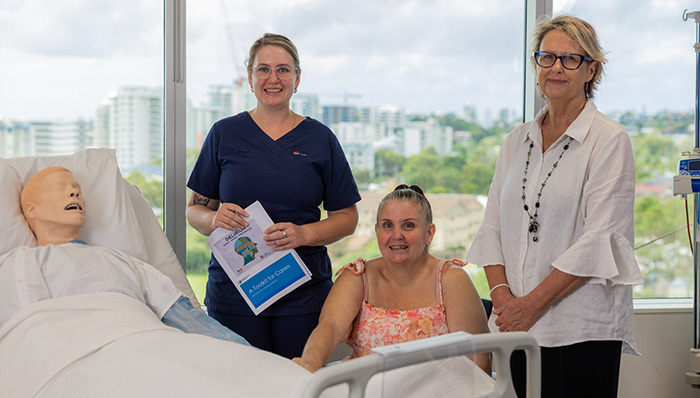
Carers involved in a pilot study have endorsed an online tool for assessing delirium which gives them a key role in the management of loved ones affected by the confused mental state.
The new Australian-led international research, involving Southern Cross University, the University of the Sunshine Coast, the University of Saskatchewan (Canada), the University of Canberra and the Northern NSW Local Health District, showed delirium knowledge amongst carers increased significantly through use of the online delirium toolkit during the pilot.
The pilot, conducted at The Tweed Hospital on the NSW North Coast, evaluated the effectiveness of PREDICT (Prevention and Early Delirium Identification Carer Toolkit) to support partnerships between carers and nurses to prevent and manage delirium.
Delirium is frightening for elderly people experiencing it and alarming for carers attempting to support them.
Delirium is a stress-response, manifesting as a sudden decline in a person’s usual mental function, usually caused by several underlying acute, short-term illnesses and medical complications, for example UTI, pneumonia or post-surgery. It is often mistaken for dementia because both conditions have similar symptoms, such as confusion, agitation and delusions. However, unlike dementia, delirium comes on very quickly and is potentially reversible.
The lead investigator is Dr Christina Aggar, Associate Professor of Nursing at Southern Cross University and Conjoint Northern NSW Local Health District.
“Delirium is the number one hospital-acquired complication in Australia, costing our healthcare system more than a billion dollars a year,” said Dr Aggar. “The emotional and financial toll to the patient and the carer is also extremely significant.
“PREDICT supports family carers to understand delirium and make sense of their predicament. Having gained knowledge about delirium, carers can partner with nurses to address risk and implement strategies to prevent and manage delirium.”
The easy-to-use interactive assessment tool ensured that a carer or loved one was able to determine whether a person was at risk of delirium or whether the person was likely to have delirium. The toolkit also provided valuable information that supports carers’ own wellbeing.
The next step for the research team is to secure funding to develop a larger trial at hospitals around the country.
The research is published in the Journal of General Internal Medicine (DOI link) 10.1007/s11606-024-08734-6
Pictured above: Erin Davis, Registered Nurse Tweed Hospital, carer Kate Siffleet and Dr Christina Aggar, Associate Professor of Nursing at Southern Cross University and Conjoint Northern NSW Local Health District. Photo (c) Southern Cross University